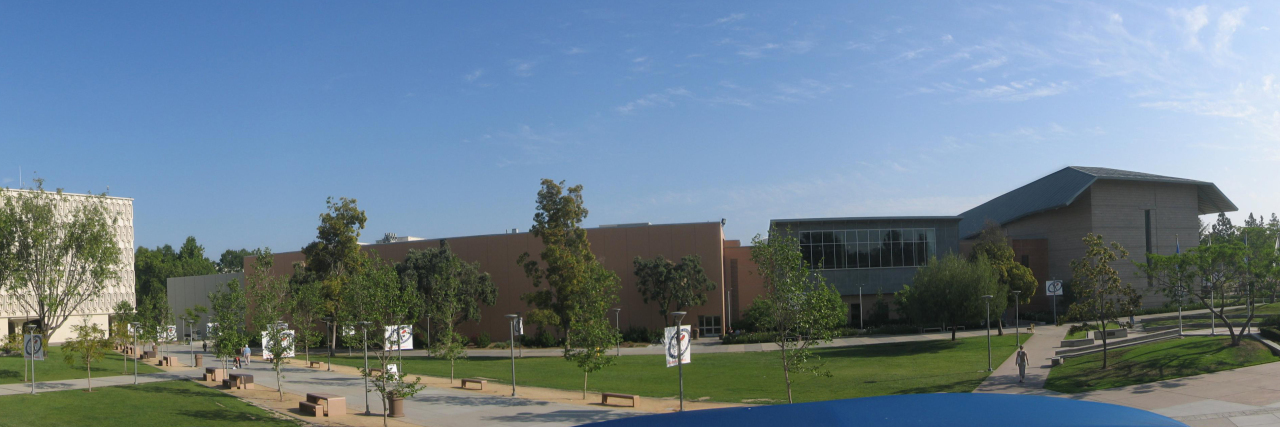How My University Could Be More Inclusive of Students With Disabilities
I had the honor and privilege of presenting on disability advocacy at California State University, Fullerton’s 2018 Social Justice Summit. A worksheet I created and used for this presentation includes the issues I have observed, tips for allyship, advocacy opportunities within the CSUF community, and more. The activity of the disability checklist is to show that in fact, all of these issues are prevalent on our campus. While diverse and inclusive, our campus harbors accessibility and other barriers, discrimination/stigma, and a social climate that can be improved for our students with disabilities.
I empower and provide opportunities for other students with disabilities within our organizations that are dedicated to advocating for the largest minority group in America. I openly disclose my disability and show through my actions that disability does not mean inability. I also model what disability allyship and sensitivity looks like. I hope to fight stigma, educate regarding sensitivity and allyship, and advocate for solutions to these issues to level out the playing field so that all students can have equal access to an education that accurately reflects their knowledge and skills, opportunities to advocate, and supports for their individualized needs.
I would like to share from my own perspective with hopes to provide an experience that is either relatable or easier to empathize with. Of course I do not represent the experience of others, only myself. I once disclosed my disability to a professor who treated me differently afterwards. He knew I had a disability because I was using accommodations, but he did not know what it was. When he found out what it was, he said: “No wonder you email me so much…” He also seemed visibly afraid of me and would begin to step back when I approached him to ask a question, as if he thought I was obsessed with him or a danger. Even if this wasn’t the case, this is how he made me feel.
As a student with a disability who has disability pride, I strive to change the face of disability and fight stigma by showcasing my abilities and the abilities of others. I once disclosed that I have a disability to a fellow classmate whom I asked to be my volunteer note taker. When it came time to working on a group project together, he did not expect anything of me and denied me the opportunity to participate. He said he would just add my name to the project. Right before we presented, I edited the presentation drastically. When it came time to present, I rocked it. That next semester, this student came up to me on campus. He thanked me for showing him what students with disabilities can do. He is in charge of hiring at his company. He said that in the past, he would not even give people with disabilities a chance, but now he knows he can place people with disabilities where their talents lie. This is an example of changing the face of disability.
Additionally, the language used is extremely important and affects us in many ways. The way my invisible disability and mental illness is misunderstood has affected me personally. In society, it is too common that I hear people throwing my disability around as an adjective to describe how neat or perfectionistic others are. I once disclosed to a coworker that I have OCD. I did this so that my coworker would better understand why I can arrive late, and why I might behave differently. It took a lot for me to share this to my coworker at that point of my life, and my coworker responded with “OMG me too!” and laughed. I became discouraged when it came to self-advocacy and was later let go of that job because I did not request accommodations or communicate with my employers for understanding. I feel using disabilities as jokes saying things like, “OMG I’m so dyslexic,” “I’m so OCD about organizing,” “This is diabetes in a cup,” or “Sorry I’m so blind/deaf” can really delegitimize the experience of individuals with disabilities, and can further add to the stigma and misunderstandings. I try to bring awareness to this as it is easier to prevent its occurrence than to self-advocate when it happens.
Despite the low expectations society has historically had for people with disabilities, we can be independent and successful. CSUF would really benefit from a Sensitivity/Allyship Training for all faculty and staff, a Safe Space/Resource Center, physical accessibility at our old building McCarthy Hall so students can attend their classes, access the bathroom during class, and escape during an emergency, more space for our students to utilize Testing Accommodations, more space and resources for our Disability Support Services office and much more.
We also need to bring more awareness to our resources by educating our community about the signs and symptoms of invisible disabilities, what kinds of supports are available, and more. We need to hold our faculty and staff to higher standards in order to avoid the all too common discrimination such as professors publicly identifying which students have disabilities in their classes without student consent, asking students what their disabilities are, denying the use of legally entitled accommodations or making comments such as “but you don’t look disabled. That wouldn’t be fair to the other students. Maybe you just need to try a little harder.” If you have any ideas, contacts, resources, would like to collaborate, financially support our advocacy work or get involved, please contact me!

